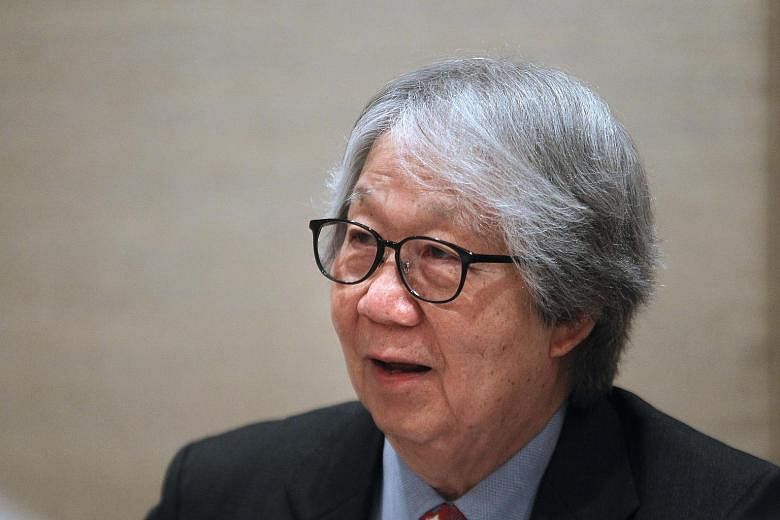Singapore has sought to use international law as both a sword to advance its interests, and a shield to defend its interests, veteran diplomat Tommy Koh said yesterday.
It therefore adopts a principled approach in always abiding by international law, he told 200 members and guests of the Law Society of Singapore at a lecture titled Singapore And International Law: A 50-Year Retrospective.
This approach guided founding prime minister Lee Kuan Yew, added Professor Koh, who recounted how when Mr Lee was told that something he suggested was not consistent with international law, he would drop the idea altogether.
However, Singapore's belief in international law is "not based on blind faith", Prof Koh said.
"We know that the international rule of law is weak and cannot deter a determined aggressive power, such as Russia, from using military force to secure its strategic objectives," said Prof Koh, who chairs the Centre for International Law at the National University of Singapore and is also an Ambassador- at-Large.
"We accept the reality that when there is a collision between law and military power, military power usually prevails, at least for the short term," he said.
The first principle of Singapore's foreign policy, Prof Koh said, has always been to be strong economically and militarily so it can defend its independence and territorial integrity.
Singapore, he added, should also work assiduously with other like-minded countries to strengthen the international rule of law because "as a small country, we want to live in a world which is ruled by law rather than by force".
Prof Koh cited several cases in which Singapore has relied on international law to protect its interests.
In 1961 and 1962, Singapore had entered into Water Agreements with Johor which, as a constituent state of Malaysia, does not have the legal status to enter into an international treaty. To protect its vital interests, Singapore inserted a "water clause" in the Independence of Singapore agreement with Malaysia that was eventually registered with the United Nations, Prof Koh noted.
He also cited two separate disputes with Malaysia, over land reclamation off Pulau Tekong and Tuas, and over Pedra Branca.
In 2002, Malaysia had accused Singapore of encroaching into its territorial waters with reclamation works in Tuas. Malaysia referred the dispute to arbitration, and Prof Koh noted that the eventual report by an arbitral tribunal largely exonerated Singapore. But it required Singapore to modify the contours of reclamation in Pulau Tekong and pay some compensation.
Both countries had also referred their dispute over Pedra Branca to the International Court of Justice (ICJ). While Singapore was relieved that the ICJ awarded Pedra Branca to Singapore in 2008, it was "rather disappointed" that it granted Middle Rocks to Malaysia.
Both governments accepted the judgment, and Pedra Branca is "no longer a divisive issue, no longer an irritant, in our bilateral relations".
This outcome, he added, was justification for being willing to acknowledge the dispute and to take the risk of losing the case in the ICJ.


